The Well-Tempered Ear
Classical music: Here are the world premieres of the fourth and fifth pieces of “pandemic music” commissioned by the U.S. Library of Congress
4 Comments
PLEASE HELP THE EAR. IF YOU LIKE A CERTAIN BLOG POST, SPREAD THE WORD. FORWARD A LINK TO IT OR, SHARE IT or TAG IT (not just “Like” it) ON FACEBOOK. Performers can use the extra exposure to draw potential audience members to an event. And you might even attract new readers and subscribers to the blog.
By Jacob Stockinger
The project has reached the midway point.
Last week was when the world premieres of the 10 short pieces — written for the Library of Congress’ “Boccaccio Project” — started going public and began being posted on various social media sites such as Twitter, Facebook and YouTube as well as the Internet.
One performance is released each weekday night starting at 8 p.m. EDT.
The project is a way to capture some of the unique culture brought about by the coronavirus pandemic and COVID-19.
The first piece was “Sequestered Thoughts,” a solo piano work by composed Damien Sneed and performed by Jeremy Jordan.
The second was “shadow of a difference/falling” by composer Richard Drehoff Jr. and solo oboist Andrew Nogal of the Grossman Ensemble.
There were featured in this blog last week.
The fourth and fifth pieces were premiered last Thursday and Friday, bringing the project to the halfway point before the Summer Solstice, Father’s Day and Make Music Madison weekend.
The fourth work is “Bridges,” a solo piano work composed by Cliff Eidelman (below top) and performed at home by Jenny Lin (below bottom, in a photo by Liz Linder).
The title refers to the composer’s focus on finding bridges from the peculiar coronavirus pandemic back to normal life.
https://www.loc.gov/concerts/boccaccio-project/eidelman-lin.html
The fifth piece is “Hello World” by composer by Erin Rogers (below top, in a photo by Aleksandr Karjaka), an exploratory work for solo flute that is performed by Erin Lesser (below bottom) of the Wet Ink Ensemble.
https://www.loc.gov/concerts/boccaccio-project/rogers-lesser.html
On the same page as the performance you can read what the composer and sometimes the performer have to say about the new work and what it strives to mean or express.
You can use links to go to the five past performances and premieres.
You can also follow links on the bottom of the page to see more information about both the composer and the performer, and to general background of the project.
If you would like some more background, along with some commentary and questions from The Ear, go to https://welltempered.wordpress.com/2020/06/13/classical-music-the-library-of-congress-has-commissioned-new-music-about-the-coronavirus-pandemic-you-can-listen-to-the-premieres-from-this-monday-june-15-through-june-28/
What do you think of the pieces?
What do you think of the project?
Will you like to hear more of the commissioned music?
The Ear wants to hear.
Tags: #AndrewNogal, #AWeekendintheCountry, #BlogPost, #BlogPosting, #BoccaccioProject, #ChamberMusic, #CliffEidelman, #CommissionedMusic, #CoronavirusPandemic, #COVID-19, #DamienSneed, #FacebookPost, #FacebookPosting, #Father'sDay, #GiovanniBoccaccio, #GrossmanEnsemble, #HelloWorld, #JacobStockinger, #JennyLin, #JeremyJordan, #LibraryofCongress, #MakeMusicDay, #MakeMusicMadison, #NewMusic, #NormalLife, #RichardDrehoffJr., #Self-Isolation, #Stayathome, #SummerSolstice, #TheEar, #TheInternet, #TheU.S., #U.S.Government, #ViolaMusic, #ViolinMusic, #WetInkEnsemble, #WorldPremiere, #YouTubevideo, Andrew Nogal, Arts, audience, background, blog, Boccaccio, Boccaccio Project, bridge, California, Cello, Chamber music, Classical music, Cliff Eidelman, commentary, commission, composer, Congress, coronavirus, culture, Damien Sneed, difference, ensemble, exploratory, explore, express, Facebook, falling, fathers day, federal, fifth, first, flute, flutist, forward, fourth, Friday, general, Giovanni Boccaccio, government, Grossman Ensemble, halfway, hear, hello, Hello World, Home, Internet, isolation, Jacob Stockinger, Jenny Lin, Jeremy Jordan, last, library, Library of Congress, life, like, link, Madison, Make Music Day, Make Music Madison, mean, Music, New Music, New York City, night, normal, Oboe, oboist, page, pandemic, past, peculiar, performance, performer, Pianist, Piano, piece, piuece, Point, posting, project, public, questions, reader, Richard Drehoff Jr., say, second, self-isolating, shadow, share, shelter, short, solo, solstice, stay at home, summer, Summer solstice, tag, The Ear, think, third, Thursday, Twitter, U.S., unique, United States, Viola, violoist, week, weekday, weekend, Wet Ink Ensemble, world, world premiere, YouTube
Classical music: Today is the Summer Solstice. What music best greets summer during this odd year? Plus, here is information about Make Music Madison this Sunday
1 Comment
PLEASE HELP THE EAR. IF YOU LIKE A CERTAIN BLOG POST, SPREAD THE WORD. FORWARD A LINK TO IT OR, SHARE IT or TAG IT (not just “Like” it) ON FACEBOOK. Performers can use the extra exposure to draw potential audience members to an event. And you might even attract new readers and subscribers to the blog.
By Jacob Stockinger
Today – Saturday, June 20, 2020 – is the Summer Solstice.
Summer officially arrives this afternoon at 4:43 p.m. CDT.
Is The Ear alone in thinking that the time since the winter solstice has passed both more slowly and also more quickly than usual, thanks to the pandemic?
And now the days will start getting shorter. Can that be possible? Is the year really half over?
Well, it has been an unusual spring and promises to be an unusual summer, to say the least.
So how about some unusual Vivaldi?
If you listen to Wisconsin Public Radio, chances are good that today or sometime soon you will hear the hyper-popular original version of “Summer” from Vivaldi’s “The Four Seasons.”
But The Ear finds this unusual contemporary version a welcome change from the over-programmed and too familiar original version, and more appropriate to the special summer that will follow the special spring.
It is a version that has been “recomposed” by British composer Max Richter (below top) with violin soloist Daniel Hope (below bottom), a protege of the legendary Yehudi Menuhin, who performed several years ago with the Madison Symphony Orchestra.
The Ear finds the entire work very appealing, but here is the YouTube video of just the Summer section as it was being recorded.
If you don’t like this music, what music would you choose to listen to as you celebrate the coming of summer?
And if you like this excerpt, here is a link to the complete version of “Vivaldi Recomposed”:
https://www.youtube.com/watch?v=dJnxPgT83rw
MAKE MUSIC MADISON
Today may be the Summer Solstice, but this year’s Make Music Madison will take place this Sunday, which also happens to be Father’s Day.
The eight annual Make Music Madison – which includes classical music but also rock, jazz, folk, blues, hip-hop and country — is part of Make Music Day, an international celebration of the Summer Solstice that this year will take place in some 1,000 cities in 120 countries.
Here is a helpful listing with locations, time, performers and programs as well as form (virtual and online, with links, or real): http://www.makemusicmadison.org
Here is a story with more background about the event: http://www.makemusicday.org
If you attend or hear some of the events, let us know what you thought.
The Ear wants to hear.
Tags: #AmericanJazz, #AntonioVivaldi, #BaroqueMusic, #BlogPost, #BlogPosting, #BluesMusic, #BritishComposer, #ChamberMusic, #CoronavirusPandemic, #CountryMusic, #COVID-19, #DanielHope, #FacebookPost, #FacebookPosting, #Father'sDay, #FolkMusic, #FourSeasons, #GreatBritain, #Hip-hopmusic, #ItalianBaroque, #italianComposer, #JacobStockinger, #MadisonSymphonyOrchestra, #MakeMusicDay, #MakeMusicMadison, #MaxRichter, #MusicalExcerpt, #OriginalVersion, #RapMusic, #RockandRoll, #SummerSolstice, #TheBlues, #TheEar, #UnitedKingdom, #ViolinConcerto, #VocalMusic, #WinterSolstice, #WisconsinPublicRadio, #YehudiMenuhin, #YouTubevideo, alone, Antonio Vivaldi, appealing, arrive, Arts, attend, audience, background, Baroque, blog, blues, British, celebrate, Chamber music, change, cities, city, Classical music, complete, compose, composer, concerto, contemporary, coronavirus, countries, country, country music, Daniel Hope, day, Early music, England, event, excerpt, Facebook, fathers day, find, folk, form, forward, Four Seasons, Great Britain, greet, half, helpful, hip-hop, information, international, Italian, Jacob Stockinger, Jazz, June, legend, legendary, like, link, listing, location, Madison, Madison Symphony Orchestra, Make Music Day, Make Music Madison, Max Richter, Music, odd, official, online, original, over, pandemic, passed, perform, performer, Piano, popular, possible, post, posting, program, promise, protege, quickly, rap, real, recompose, Richter, Rock, Saturday, Season, share, shorter, slowly, soloist, solstice, Spring, story, summer, Summer solstice, Sunday, tag, thanks, The Ear, The Four Seasons, think, time, today, UK, United States, unusual, version, Violin, Violin concerto, violinist, virtual, Vivaldi, vocal music, welcome, winter solstice, Wisconsin, wisconsin public radio, years, Yehudi Menuhin, YouTube
Classical music: Today is the Winter Solstice. It’s a good time to listen to Schubert’s “Winterreise” (Winter Journey) — this year in English translation
2 Comments
PLEASE HELP THE EAR. IF YOU LIKE A CERTAIN BLOG POST, SPREAD THE WORD. FORWARD A LINK TO IT OR, SHARE IT or TAG IT (not just “Like” it) ON FACEBOOK. Performers can use the extra exposure to draw potential audience members to an event. And you might even attract new readers and subscribers to the blog.
By Jacob Stockinger
Winter starts today – Saturday, Dec. 21, 2019 – when the Winter Solstice arrives tonight at 10:19 p.m.
That means tonight — the longest night of the year — we turn the corner. The days start getting longer and the nights shorter.
It is also the day when The Ear likes to listen to the best winter music ever written: the cycle of 24 songs called “Winterreise” (Winter Journey) by Franz Schubert (1797-1828).
Over the years, The Ear has heard many fine versions. Among his favorite singers are Ian Bostridge, Dietrich Fischer-Dieskau, Matthias Goerner and Thomas Quasthoff.
Next year, you can probably expect to see a new release of the performance this past week by mezzo-soprano Joyce DiDonato and the pianist-conductor Yannick Nézet-Séguin.
But this year, he is listening – even as he writes – to a 2018 version by the critically acclaimed British baritone Roderick Williams (below top) with pianist Christopher Glynn (below bottom) on the Signum Classics record label.
The real and unusual appeal is that all the songs are sung in English — not the original German.
And The Ear finds it very appealing not to have to read translations but instead to sit back and listen directly to the meaning of the stories in the songs — all sung with excellent diction — in the austere, subtle and outstanding translation by theater director and writer Jeremy Sams (below).
It makes The Ear want to hear more Lieder or art songs sung in English translation — both live and recorded — just as he likes the translation, used by the Metropolitan Opera, done by the late American poet J.D. “Sandy” McClatchy of Mozart’s opera “The Magic Flute”
Try it and see what you think.
Here is the first song on YouTube, where the audio proceeds through the remainder of the 70-minute cycle after the end of each song.
Enjoy. And let us know what you think of the English translation:
Tags: #ArtSong, #AustrianComposer, #BaritoneSinger, #BlogPost, #BlogPosting, #ChamberMusic, #ChristopherGlynn, #CollaborativePianist, #CriticallyAcclaimed, #DietrichFischerDieskau, #EnglishTranslation, #FacebookPost, #FacebookPosting, #FranzSchubert, #IanBostridge, #J.D.McClatchy, #JeremySams, #JoyceDiDonato, #LiveMusic, #MatthiasGoerner, #MetropolitanOpera, #Mezzo-sopranoSinger, #OriginalEnding, #PianoAccompaniment, #PianoAccompanist, #RecordLabel, #RoderickWilliams, #SaturdayNight, #SchubertLieder, #SignumClassics, #SongCycle, #TheEar, #TheMagicFlute, #ThomasQuasthoff, #ViennaAustria, #VocalMusic, #WinterJourney, #WinterSolstice, #WolfgangAmadeusMozart, #YannickNezet-Seguin, #YouTubevideo, American, art song, Arts, austere, Austria, baritone, blog, British, Chamber music, Christopher Glynn, Classical music, Compact Disc, composer, Concert, conductor, corner, critically acclaimed, day, diction, Dietrich Fischer-Dieskau, director, English, excellent, Facebook, forward, Franz Schubert, German, good, hear, Ian Bostridge, Jacob Stockinger, Jeremy Sams, Joyce DiDonato, label, lieder, like, link, listen, live, live music, Madison, Metropolitan Opera, Mezzo-soprano, minute, Mozart, Music, new, night, opera, original, performance, Pianist, Piano, poet, record, recording, release, rhyme, Roderick Willliams, Saturday, Schubert, Schubert Lieder, share, Signum Classics, sing, singer, Singing, solstice, song, song cycle, start, subtle, sung, tag, The Ear, The Magic Flute, theater, theatre, think, Thomas Quasthoff, time, today, translation, turn, unusual, version, Vienna, vocal music, winter, Winter Journey, winter solstice, Wolfgang Amadeus Mozart, write, Yannick Nézet-Séguin, years, YouTube
Classical music: Summer begins today with Make Music Madison. Plus, both American pianists have advanced in the 16th International Tchaikovsky Competition
1 Comment
IF YOU LIKE A CERTAIN BLOG POST, PLEASE SPREAD THE WORD. FORWARD A LINK TO IT OR, SHARE IT or TAG IT (not just “Like” it) ON FACEBOOK. Performers can use the extra exposure to draw potential audience members to an event. And you might even attract new readers and subscribers to the blog.
By Jacob Stockinger
The summer solstice arrives this morning at 10:54 a.m.
That means today is when Make Music Madison takes place. Wisconsin’s capital city will join more than 1,000 other cities across the globe in celebrating live music-making of all kinds that is FREE and mostly outdoors.
Here is a link to the site with a map of various artists and venues – some 400 events in about 100 venues — and well as times around Madison:
http://www.makemusicmadison.org
Here is an earlier post with more details about the worldwide event:
But that’s not the only news today.
Last night, the 24 piano contestants in the preliminary round of the 16th International Tchaikovsky Competition in Moscow and Saint Petersburg were trimmed down to 14 semi-finalists. (It was supposed to be 12, but the jury couldn’t agree on 12.)
And the good news is that both Americans — Sara Daneshpour (below top) and Kenneth Broberg (below bottom, in a photo by Jeremy Enlow), who performed a recital last season in Madison at the Salon Piano Series held at Farley’s House of Pianos — made the cut. The next round starts very early today, given the 8 hours ahead time difference between here and Moscow, and runs into the afternoon.
Here is the complete list of the piano semi-finalists:
https://tch16.medici.tv/en/news/piano-first-round-results/
Of course, pianists aren’t the only ones who might be interested in the competition that became well known in the West when Van Cliburn won the inaugural competition in 1958.
These days, competitions are also going on in violin, cello, voice, brass and woodwinds as well as piano.
What’s more, the entire competition is being live-streamed on Medici TV, and all the performances, from the preliminaries through the finals, are being streamed in real time and also archived. Plus, it’s all FREE. Thank you, Medici!
Here is a link. You’ll find archived performances, which go up pretty fast, under replays. The Ear has found that the sound is excellent and the website pretty self-explanatory and easy to navigate. Check out the preliminary recitals with music by Bach, Haydn. Mozart, Beethoven, Chopin, Liszt, Rachmaninoff and of course Tchaikovsky. Here is a link:
Today being the first day of summer, you’ll probably get to hear “Summer” from “The Four Seasons” by Antonio Vivaldi.
But given other news, something by Tchaikovsky seems especially appropriate. So here is the “June” Barcarolle, or boat song, from the solo piano suite “The Four Seasons,” which features one piece for each of the 12 months in the year. You can hear “June” in the YouTube video at the bottom.
Tags: #AntonioVivaldi, #BlogPost, #BlogPosting, #BluesMusic, #BoatSong, #ChopinEtudes, #Classicalperiod, #FacebookPost, #FacebookPosting, #Farley'sHouseofPianos, #FolkMusic, #FranzJosephHaydn, #FranzLiszt, #FredericChopin, #GospelMusic, #Hip-hopmusic, #InternationalTchaikovskyCompetition, #JazzMusic, #JohannSebastianBach, #KennethBroberg, #LiveMusic, #LiveStreaming, #LudwigVanBeethoven, #MakeMusicMadison, #MediciTV, #MoscowRussia, #PeterIlyichTchaikovsky, #PreludeandFugue, #RussianMusic, #SaintPetersburg, #SalonPIanoSeries, #SaraDaneshpour, #SergeiRachmaninoff, #SummerSolstice, #SwingMusic, #TchaikovskyInternationalCompetition, #TheFourSeasons, #VanCliburn, #VocalMusic, #Well-TemperedClavier, #WolfgangAmadeusMozart, #YouTubevideo, American, Antonio Vivaldi, archive, arrive, artist, artists, Arts, attract, audience, Bach, barcarolle, Baroque, Beethoven, blog, blues, boat song, brass, capital, celebrate, Cello, Chopin, cities, city, Classical, Classical music, classicalmusic, Competition, composer, Concert, concerto, details, difference, earlhours, Early music, etude, event, Facebook, Farley's House of Pianos, Folk music, forward, Franz Joseph Haydn, Franz Liszt, free, fugue, globe, gospel, hip-hop, interest, International Tchaikovsky Competition, Jacob Stockinger, Jazz, Johann Sebastian Bach, June, Kenneth Broberg, like, link, Liszt, live, live music, live streaming, live-streamed, Ludwig van Beethoven, Madison, Make Music Madison, map, Medici, medici.tv, month, morning, Moscow, Mozart, Music, new, news, Orchestra, outdoors, performance, performer, Pianist, Piano, piece, post, preliminary, Prelude, reader, real, round, Russia, Saint Petersburg, Salon Piano Series, Sara Daneshpour, semi-finalist, Sergei Rachmaninoff, share, site, solo, solstice, Sonata, song, streaming, subscriber, Suite, summer, Summer solstice, swing, tag, Tchaikovsky, Tchaikovsky International Competition, The Four Seasons, time, today, Van Cliburn, venue, Violin, vocal music, voice, Well-Tempered Clavier, Wisconsin, Wolfgang Amadeus Mozart, woodwinds, world, worldwide, year, YouTube
Classical music: Today is the summer solstice. Here is information about the solstice plus 20 pieces of classical music to mark the coming of summer
1 Comment
ALERT: Today is the fifth annual Make Music Madison. More than 300 FREE outdoor performances will be featured at some 100 venues. For information about artists, kinds of music, places and times, go to: http://www.makemusicmadison.org
By Jacob Stockinger
Today is Thursday, June 21, 2018.
The summer solstice arrives in Wisconsin early today at 5:07 a.m. Central Daylight Time.
If you want to know more about the summer solstice, here are two stories from NBC and The Washington Post with some interesting information you might not know:
https://www.nbcnews.com/mach/science/what-summer-solstice-ncna884991
Quite a few composers and works of classical music celebrate the coming of summer.
Twenty of the best-known are featured on a blog at the famous classical radio station WQXR FM in New York City. Here is a link:
https://www.wqxr.org/story/20-summertime-classical-pieces-maximum-chill/
The blog posting features many terrific sound samples, including such well-known works as “Summer” section from “The Four Seasons” violin concertos by Antonio Vivaldi.
Still, some of the titles – including the famous Overture to “A Mid-Summer Night’s Dream” by Felix Mendelssohn – are not accompanied by sound.
That includes one of The Ear’s favorites, “Knoxville, Summer 1915” by the American composer Samuel Barber with words by the journalist and documentarian James Agee.
Here it is, in a much-praised recording by soprano Dawn Upshaw, in the YouTube video at the bottom.
Here’s hoping summer is better in this part of the country than spring was, what with record cold in April and record rainfall in May that seems to be continuing with disastrous flooding in June.
Happy Summer, all.
Tags: #AntonioVivaldi, #AntonWebern, #BlogPost, #BlogPosting, #CentralDaylightTime, #DawnUpshaw, #EdvardGrieg, #FelixMendelssohn, #FrankBridge, #FrederickDelius, #GabrielFaure, #HectorBerlioz, #JamesAgee, #JosefSuk, #Knoxvile, #MarkO'Connor, #MidsummerNight'sDream, #MikhailGlinka, #NaturalDisaster, #NBCNews, #NedRorem, #NewYorkCity, #PeterTchaikovsky, #PeterTchaikowsky, #SamuelBarber, #SergeiProkofiev, #SummerSolstice, #TheWashingtonPost, #ViolinConcerto, #ViolinMusic, #WilliamGrantStill, #ZoltanKodaly, April, Arts, Bach, Baroque, Berlioz, blog, Cello, Chamber music, choral music, Classical music, cold, Compact Disc, composer, concerto, country, Delius, disaster, documentarian, documentary, Early music, flood, flooding, georgegershwin, Gershwin, Glinka, Grieg, information, Johann Sebastian Bach, Johannes Brahms, journalism, journalist, June, Kodaly, Madison, Mark O'Connor, May, Music, NBC, Ned Rorem, New York City, news, Overture, posting, Prokofiev, Radio, rainfall, solstice, soprano, station, Stonehenge, storms, Suk, Summer solstice, Summer1915, Tchaikovsky, United States, University of Wisconsin-Madison School of Music, University of Wisconsin–Madison, Viola, Violin, vocal music, Webern, wet, William Grant Still, WQXR-FM
Classical music: Today is the winter solstice. What music best captures or celebrates winter?
6 Comments
By Jacob Stockinger
Today is the Winter Solstice.
Winter arrives at 10:28 a.m. Central Standard Time.
That means we are turning the corner. Starting today, nights will get shorter and days will get longer.
But there is still plenty of the year’s most blustery and bone-chilling weather ahead of us.
Lots of classical music celebrates winter.
Vivaldi’s “Four Seasons” is a popular choice.
So is the “Winter Dreams” symphony by Tchaikovsky.
Here are links to two compilations of winter music, lasting for a total of more than two hours, on YouTube:
https://www.youtube.com/watch?v=yNMIgZAx2gQ
https://www.youtube.com/watch?v=v2jAweLVLRk
But no music is more wintry than the celebrated song cycle “Winterreise” or “Winter Journey” by Franz Schubert (below).
Every year, The Ear uses the solstice and the coming of winter to listen once again to this deeply moving and surprisingly modern song cycle.
Many excellent recordings exist. Famed German baritone Dietrich Fischer-Dieskau (below left, with pianist Gerald Moore) made multiple recordings over many years.
In recent years Matthias Goerner, Thomas Quasthoff, Mark Padmore, Jonas Kaufmann and many others have already made acclaimed recordings, always with distinguished pianists including Gerald Moore, Alfred Brendel, Murray Perahia, Daniel Barenboim and Paul Lewis.
Yet I always find the most satisfying version to be the one made by English tenor Ian Bostridge with Norwegian pianist Leif Ove Andnes.
Bostridge’s tenor voice lends a lightness that has a certain clarity and almost speech-like quality to it.
And Bostridge, who wrote the excellent book “Schubert Winter Journey: Anatomy of an Obsession” – a song-by-song analysis of the cycle — knows the texts and contexts of the songs inside and out. His are well-informed and thoroughly thought-out interpretations.
The whole cycle takes about 70 minutes to listen to.
This year The Ear might do one of the 24 songs in the cycle each day and then the entire cycle in one sitting at the end.
The different approach might yield some new insights and new pleasure.
Anyway, choose your own artists and your own way of listening.
But it is a great and timely choice.
Here is “Good Night,” the first song of “Winterreise”:
And here is “The Organ Grinder,” the last song and a favorite of writer Samuel Beckett who found a shared sensibility in the lean austerity of the music of the music and the text:
What winter music would you listen to or recommend to mark the solstice and the coming of winter?
The Ear wants to hear.
Tags: accompanist, Alfred Brendel, analysis, anatomy, Arts, austere, Bach, baritone, Baroque, Beethoven, Book, British, Cello, central, Chamber music, choice, choral music, Classical music, cold weather, Compact Disc, compilation, composer, concerto, context, cycle, Daniel Barenboim, day, Dietrich Fischer-Dieskau, dream, Early music, Four Seasons, Franz Schubert, George Frideric Handel, Gerald, Gerald Moore, German, good, good night, Ian Bostridge, insight, Jacob Stockinger, Johann Sebastian Bach, Johannes Brahms, Jonas Kaufmann, journey, lean, Leif Ove Andsnes, listen, long, Ludwig van Beethoven, Madison, Mark Padmore, Matthias Goerner, modern, moving, Mozart, Murray Perahia, Music, night, Norwegian, obsession, opera, Orchestra, organ, Paul, Paul Lewis, Piano, pleasure, popular, Samuel Beckett, Season, short, singer, solstice, Sonata, song, standard, symphony, Tchaikovsky, tenor, text, Thomas Quasthoff, time, United States, University of Wisconsin-Madison School of Music, University of Wisconsin–Madison, Viola, Violin, Vivaldi, vocal music, weather, winter, Winterreise, wintry, Wolfgang Amadeus Mozart, Writer, YouTube
Classical music: What classical music best celebrates the solstice and the arrival of summer?
6 Comments
REMINDER: Today is the fifth annual citywide Make Music Madison that celebrates the coming of summer with FREE, PUBLIC and LOCAL performances. For more information, go to: https://welltempered.wordpress.com
By Jacob Stockinger
Summer arrived late last night – at 11:24 p.m. — in the Midwest.
To mark and celebrate the welcome event, here are three pieces of well-known summer-related music:
Wolfgang Amadeus Mozart’s “Eine kleine Nachtmusik” or a “A Short Night Music” (or “A Little Night Music”:
Summer from Astor Piazzolla’s “Four Seasons in Buenos Aires”:
And Samuel Barber’s “Knoxville, Summer of 1914” with soprano Dawn Upshaw.
But there is so much more to choose from.
Here is a link to five other pieces by different composers –- Antonio Vivaldi, Felix Mendelssohn, Frank Bridge, Alexander Glazunov, Frederick Delius and George Gershwin.
http://www.classical-music.com/article/six-best-pieces-classical-music-summer
Which music would you choose to mark the summer solstice and the coming of summer?
Leave word and a YouTube link, if possible, in the COMMENT section.
The Ear wants to hear.
Tags: Argentina, Arts, Baroque, Buenos Aires, Cello, Chamber music, Classical music, concerto, Dawn Upshaw, Delius, Early music, Eine Kleine Nachtmusik, Feix Mendelssohn, Four Seasons of Buenos Aires, Frank Bridge, free, Gershwin, Glazunov, Jacob Stockinger, Knoxville Summer 1915, local, Madison, Make Music Madison, Midwest, Mozart, Music, Orchestra, Piazzolla, public, Samuel Barber, solstice, soprano, summer, Summer solstice, tango, The Four Seasons, United States, University of Wisconsin-Madison School of Music, University of Wisconsin–Madison, Viola, Violin, Vivaldi, vocal music, Wolfgang Amadeus Mozart, YouTube
Classical music: Wednesday brings the fifth annual Make Music Madison celebration of the summer solstice. You can hear FREE music of all kinds from morning to night, outdoors and indoors
Leave a Comment
By Jacob Stockinger
Registration has closed and the fifth annual Make Music Madison festival is set to take place tomorrow, Wednesday, June 21, 2017. ( A promotional video from the 2013 event is in the YouTube video at the bottom.)
The annual celebration of the Summer Solstice, which arrives at 11;24 p.m. tonight, will run all day, featuring all kinds of music from morning to night, and take place indoors and outdoors.
And it is FREE and completely local.
So far, there are more than 275 artists registered to perform at 108 venues in every area across the city, including the Dane County Regional Airport, Henry Vilas Zoo, Olbrich Botanical Gardens, the Goodman Center, Hilldale Mall, the First Congregational United Church of Christ, and the University of Wisconsin-Madison.
For a complete listing, go to: http://www.makemusicmadison.org
Once you are on the website, go to the map on the right hand side and under FILTER and GENRE and click on classical. You will find more than 20 events.
Then click on the VENUE’s tear-drop shaped red indicator to see the name of artists, group and kind of music you can hear.
They include a cello choir, an early music group, a guitar ensemble, string quartets and the Suzuki Strings of Madison (seen below at last spring’s Bach Around the Clock.) There is plenty of amateur music-making, which The Ear loves to see, but also some professional performances.
The click on the name and you will get more detailed background and a program, if one is available.
You can also search by ARTIST and VENUE – including general areas of the city — and well as by GENRE.
Take it from The Ear: This site has some really impressive and easy-to-use organization for getting at its information. So The Ear gives big shout-outs to to the people who designed the website and put it together.
Of course there are many more events in other genres and kinds of music, including blues, jazz, rock, roots, folk, world music and others. But many of them overlap or pertain to classical music, and you won’t want to miss them.
There is plenty to go around.
The Ear might even meet you at one of the events.
Enjoy! Have fun!
Tags: airport, amateur, Arts, Bach, Bach Around the Clock, Baroque, Beethoven, blues, botanical, Cello, center, Chamber music, choral music, Christ, church, Classical music, Dane County Regional Airport, Early music, festival, First Congregational United Church of Christ, folk, Garden, genre, Goodman Center, Henry Vilas Zoo, Hilldale Mall, Jacob Stockinger, Jazz, Johann Sebastian Bach, live, Madison Symphony Orchestra, Make Music Madison, mall, Music, Olbrich Botanical Gardens, Piano, professional, Rock, roots, solstice, Sonata, summer, Suzuki, Suzuki Strings of Madison, United States, university, University of Wisconsin-Madison School of Music, University of Wisconsin–Madison, venue, Viola, Violin, vocal music, Website, World music, zoo
Classical music: Applications are now being accepted for the fifth Make Music Madison on Wednesday, June 21. Read all about it and tell us what you think
Leave a Comment
By Jacob Stockinger
Doing something for five years in a row is certainly enough to qualify it as an annual tradition.
So it is with Make Music Madison, the successful day-long, community-wide festival of free music performed outdoors by students, amateurs and professionals as individuals and in groups.
It takes place on the Summer Solstice, the longest day and shortest night of the calendar year. That means the event this year will happen on Wednesday, June 21, 2017.
So far, there are 178 artists and performers participating in 85 venues, which you can check out on the event’s website. More than 400 concerts in more than 100 venues are expected. (Below, in 2016, is the Oaknut Duo.)
For more background about the event that started in Paris, France, and now takes place nationwide, listen to the YouTube video about the 2013 celebration at the bottom.
Of course The Ear is well aware that most of the events are not classical music. But there will be some classical music. And it is clear that many students who start off in classical music often migrate to jazz, folk, pop, roots, blues, rock, swing, big band, rap, hip-hop and other kinds of music.
Some music almost inevitably leads to more music. (Below is keyboard artist Zuzu.)
Also needed are donations to the non-profit organization that organizes the event every year for less than the cost of a traffic light -or about $45,000. That’s a lot of bang for the bucks.
For more information about participating, donating and attending as well as seeing a photo gallery, go to:
http://www.makemusicmadison.org
What do you think?
Have you ever attended Make Music Madison?
What did you see and hear?
What did you think of individual performances and the entire event?
Leave word in the COMMENT section.
The Ear wants to hear.
Tags: 20th-century classical music, amateur, artists, Arts, Baroque, big band, blues, Cello, Chamber music, choral music, Classical music, community, Concert, dance, day, Early music, event, France, hip-hop, Jacob Stockinger, Madison, Make Music Madison, Music, nationwide, night, Nonprofit organization, Paris, performer, photo, photography, Piano, pop, professional, rap, Rock, root, solstice, song, Student, summer, swing, traffic, traffic light, United States, University of Wisconsin-Madison School of Music, University of Wisconsin–Madison, venue, Viola, Violin, vocal music, Wisconsin, YouTube
- May 2024
- April 2024
- March 2024
- February 2024
- January 2024
- December 2023
- November 2023
- October 2023
- September 2023
- August 2023
- July 2023
- June 2023
- May 2023
- April 2023
- March 2023
- February 2023
- January 2023
- December 2022
- October 2022
- September 2022
- June 2022
- May 2022
- April 2022
- March 2022
- July 2021
- June 2021
- May 2021
- April 2021
- March 2021
- February 2021
- January 2021
- December 2020
- November 2020
- October 2020
- September 2020
- August 2020
- July 2020
- June 2020
- May 2020
- April 2020
- March 2020
- February 2020
- January 2020
- December 2019
- November 2019
- October 2019
- September 2019
- August 2019
- July 2019
- June 2019
- May 2019
- April 2019
- March 2019
- February 2019
- January 2019
- December 2018
- November 2018
- October 2018
- September 2018
- August 2018
- July 2018
- June 2018
- May 2018
- April 2018
- March 2018
- February 2018
- January 2018
- December 2017
- November 2017
- October 2017
- September 2017
- August 2017
- July 2017
- June 2017
- May 2017
- April 2017
- March 2017
- February 2017
- January 2017
- December 2016
- November 2016
- October 2016
- September 2016
- August 2016
- July 2016
- June 2016
- May 2016
- April 2016
- March 2016
- February 2016
- January 2016
- December 2015
- November 2015
- October 2015
- September 2015
- August 2015
- July 2015
- June 2015
- May 2015
- April 2015
- March 2015
- February 2015
- January 2015
- December 2014
- November 2014
- October 2014
- September 2014
- August 2014
- July 2014
- June 2014
- May 2014
- April 2014
- March 2014
- February 2014
- January 2014
- December 2013
- November 2013
- October 2013
- September 2013
- August 2013
- July 2013
- June 2013
- May 2013
- April 2013
- March 2013
- February 2013
- January 2013
- December 2012
- November 2012
- October 2012
- September 2012
- August 2012
- July 2012
- June 2012
- May 2012
- April 2012
- March 2012
- February 2012
- January 2012
- December 2011
- November 2011
- October 2011
- September 2011
- August 2011
- July 2011
- June 2011
- May 2011
- April 2011
- March 2011
- February 2011
- January 2011
- December 2010
- November 2010
- October 2010
- September 2010
- August 2010
- July 2010
- June 2010
- May 2010
- April 2010
- March 2010
- February 2010
- January 2010
- December 2009
- November 2009
- October 2009
- September 2009
- August 2009
Archives
- 2,493,285 hits
Blog Stats
Recent Comments
| welltemperedear on What do you think of the… | |
| Scott on What do you think of the… | |
| welltemperedear on Yunchan Lim’s Chopin etudes ar… | |
| bratschespeilerin on What do you think of the… | |
| MARVIN P WICKENS on Yunchan Lim’s Chopin etudes ar… |
Tags
#BlogPost #BlogPosting #ChamberMusic #FacebookPost #FacebookPosting #MeadWitterSchoolofMusic #TheEar #UniversityofWisconsin-Madison #YouTubevideo Arts audience Bach Baroque Beethoven blog Cello Chamber music choral music Classical music Compact Disc composer Concert concerto conductor Early music Facebook forward Franz Schubert George Frideric Handel Jacob Stockinger Johannes Brahms Johann Sebastian Bach John DeMain like link Ludwig van Beethoven Madison Madison Opera Madison Symphony Orchestra Mead Witter School of Music Mozart Music New Music New York City NPR opera Orchestra Overture Center performer Pianist Piano post posting program share singer Sonata song soprano String quartet Student symphony tag The Ear United States University of Wisconsin-Madison School of Music University of Wisconsin–Madison Viola Violin vocal music Wisconsin Wisconsin Chamber Orchestra wisconsin public radio Wolfgang Amadeus Mozart YouTube










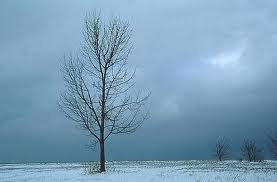
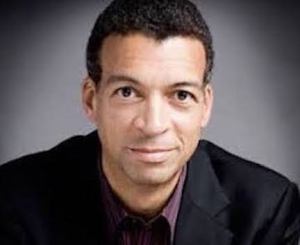
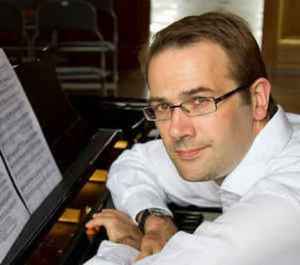
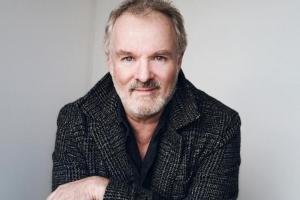
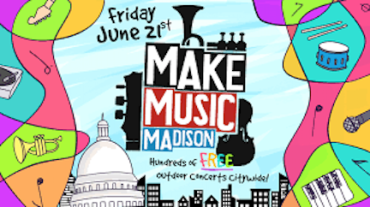

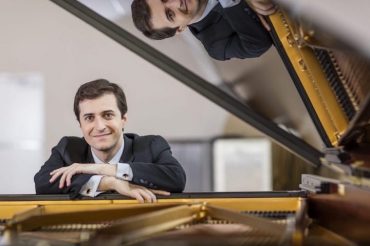





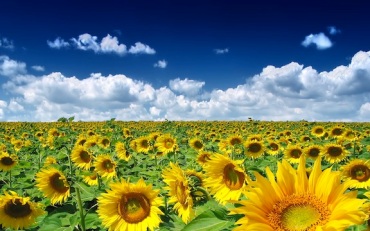
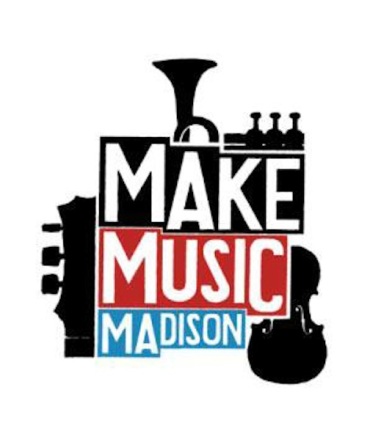
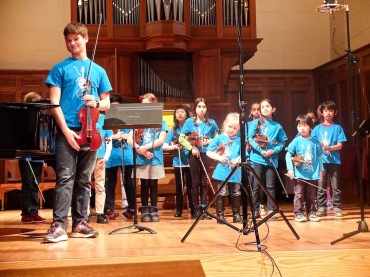
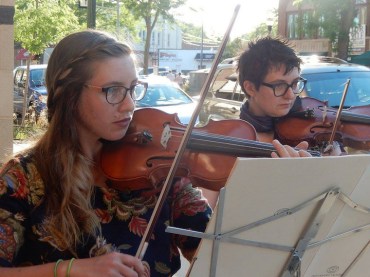
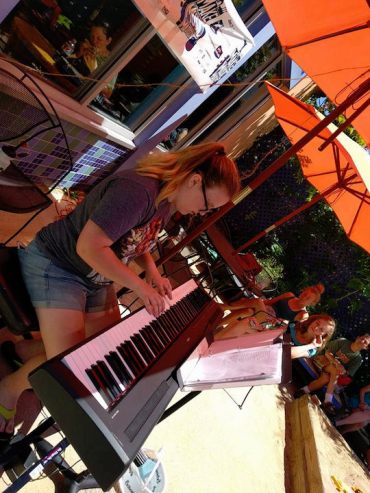
Today is the Winter Solstice. Here is a piece to make you look forward to longer days, warmth and the Summer Solstice next year
1 Comment
PLEASE HELP THE EAR. IF YOU LIKE A CERTAIN BLOG POST, SPREAD THE WORD. FORWARD A LINK TO IT OR, SHARE IT or TAG IT (not just “Like” it) ON FACEBOOK. Performers can use the extra exposure to draw potential audience members to an event. And you might even attract new readers and subscribers to the blog.
By Jacob Stockinger
Today – Monday, Dec. 21 — is the Winter Solstice, the longest night and shortest day of the year in the Northern Hemisphere. It arrives at 4:02 a.m. CST.
The Ear expects that Wisconsin Public Radio, among other media outlets, will be marking the event with traditional, often austere, winter music. That includes “Winter” from Vivaldi’s “The Four Seasons”; maybe some songs from Schubert’s “Winterreise” (Winter Journey); Peter Tchaikovsky’s “The Seasons” and “The Nutcracker”; and, of course, plenty of winter holiday music, including carols and the Baroque oratorios, cantatas and concertos by Bach, Handel, Telemann, Corelli and others.
But many people – strained by the coronavirus pandemic –are already eagerly looking forward to the days growing longer, which will culminate in the Summer Solstice at 10:31 p.m. CST on Sunday, June 21, 2021.
Who needs to celebrate the season’s cold and darkness? So The Ear thought that we could all use a little sonic sunlight, tonal warmth and musical hope, especially at the end of this Plague Year.
There are standards and favorites such as Mozart’s “Eine kleine Nachtmusik” and Vivaldi’s “Summer.”
But to The Ear that work that really lifts one’s spirits, and captures the kind of joyful abandon and youthful energy of the mid-summer event, complete with animal noises and romance, is the “Overture to a Midsummer Night’s Dream” by a 17-year-old Felix Mendelssohn (below).
You can hear it below in a YouTube performance by the Gewandhaus Orchestra of Leipzig conducted by the late, great German conductor Kurt Masur, whose son, Ken-David Masur, is the new music director and conductor of the Milwaukee Symphony Orchestra.
The Ear hopes you enjoy it.
What music would you like to hear or play to mark the Winter Solstice?
Leave a suggestion with your reason and, if possible, YouTube link in the Comment section.
The Ear wants to hear.
Share this:
Tags: #ALittleNightMusic, #AMIdsummerNight'sDream, #AntonioVivaldi, #ArcangeloCorelli, #BachCantatas, #BaroqueMusic, #BaroqueOratorio, #BlogPost, #BlogPosting, #CentralTime, #ChamberMusic, #ChoralMusic, #ChristmasConcerto, #ChristmasMusic, #ChristmasOratorio, #ClassicalMusician, #CoronavirusPandemic, #DanielHope, #EineKleineNachtmusik, #FacebookPost, #FacebookPosting, #FelixMendelssohn, #FranzSchubert, #GeorgeFridericHandel, #GeorgPhilippTelemann, #GewandhausOrchestra, #Handel'sMessiah, #HolidayMusic, #JacobStockinger, #Ken-DavidMasur, #KurtMasur, #LeipzigGermany, #MessiahOratorio, #MilwaukeeSymphonyOrchestra, #MusicDirector, #NorthernHemisphere, #PeterIlyichTchaikovsky, #PeterTchaikovsky, #PlagueYear, #StringMusic, #SummerSolstice, #TheEar, #TheFourSeasons, #TheSeasons, #TraditionalMusic, #VocalMusic, #WilliamShakespeare, #WinterJourney, #WinterSolstice, #WisconsinPublicRadio, #WolfgangAmadeusMozart, #YouTubevideo, A Little Night Music, A Midsummer Night's Dream, abandon, animal, Antonio Vivaldi, Arcangelo Corelli, arrive, Arts, audience, austere, Bach, Baroque, Baroque music, blog, Cantata, capture, Carol, celebrate, Central Time, Chamber music, choral music, Christmas Concerto, Christmas music, Christmas Oratorio, Classical music, classicalmusic, cold, comedy, comment, composer, concerto, conductor, Corelli, coronavirus, culminate, darkness, day, December, Early music, Eine Kleine Nachtmusik, energy, enjoy, event, expect, Facebook, Facebook post, Facebook posting, favorite, Felix Mendelssohn, forward, Franz Schubert, Georg Philipp Telemann, George Frederic Handel, German, Germany, great, Handel, heavy lifting, hemisphere, holiday music, hope, Jacob Stockinger, Johann Sebastian Bach, joyful, June, Ken-David Masur, Kurt Masur, late, Leipzig, Leipzig Gewandhaus Orchestra, like, link, longer, Madison, mark, media, Mendelssohn, Messiah, midsummer, Milwaukee, Milwaukee Symphony Orchestra, Monday, Mozart, MSO, Music, Music director, musical, night, noises, Northern Hemisphere, oratorio, Orchestra, outlet, Overture, pandemic, performer, Peter Ilyich Tchaikovsky, Peter Tchaikovsky, plague, Plague Year, play, post, posting, Radio, reader, Romance, Schubert, Season, Shakespeare, share, short, shorter, solstice, songs, sonic, spirit, standard, strain, string music, subscriber, summer, Summer solstice, Sunday, sunlight, symphony, tag, Tchaikovsky, teenager, Telemann, The Ear, The Four Seasons, The Seasons, today, tonal, traditional, United States, use, Vivaldi, vocal music, warmth, we, winter, Winter Journey, winter solstice, Winterreise, Wisconsin, wisconsin public radio, Wolfgang Amadeus Mozart, work, year, youthful, YouTube